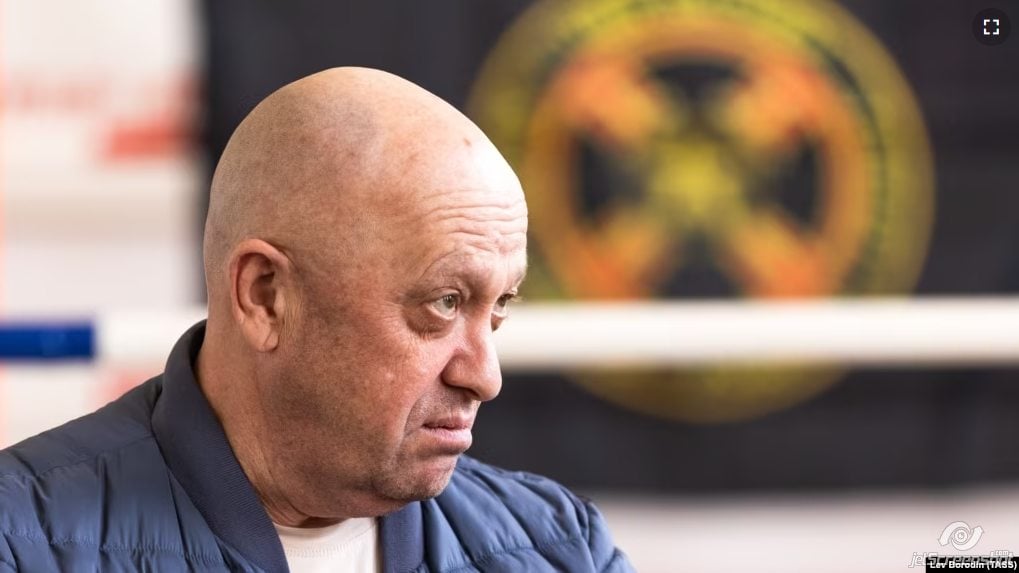By Kseniya Kirillova, for Jamestown Foundation
While the military uprising carried out by the founder of the Wagner Group, Yevgeny Prigozhin, lasted only a day, it caused enormous damage to the reputation of the Vladimir Putin regime. It turned out that the Kremlin, by its own actions, created an enormous threat to the country and was seemingly powerless to stop it. Even now, when Prigozhin apparently reached an agreement with the authorities, the conduct of Russian officials and propagandists is evidence of the complete confusion among the Russian elites.
Immediately after the start of Prigozhin’s “march for justice,” Russian propagandists took a wait-and-see attitude, voicing only the official declarations of the Russian Ministry of Defense and the Federal Security Service (FSB). But after Putin’s speech, in which he called the organizers of the mutiny “traitors” and “betrayers of the Homeland,” the pro-Kremlin media and military correspondents started to stigmatize the Wagner chief (Вusiness-gazeta.ru, June 24).
The first articles about the mutiny in official Russian media were relatively reserved. They spoke of how “Prigozhin is infected by Bonapartism” (Vz.ru, June 24) and how his actions “play into the hands of the enemies of Russia” (Kp.ru, June 24). On the same day, an article appeared on the website of main state-owned media outlet RIA Novosti affirming that Prigozhin “has become a state traitor, and accomplice of the enemy, and a traitor to his own troops,” which became the main propaganda narrative until the end of the mutiny (RIA Novosti, June 24).
Russian news agencies published articles with such titles as “The Path of a Traitor,” which discussed possible ties between Prigozhin and “the enemies of Russia,” in particular with opposition politician Mikhail Khodorkovsky who supported the “pseudo-coup” (Aif.ru, June 24). Analysts of the Russian Orthodox Tsargrad television channel went so far as to claim that Khodorkovsky and other oppositionists were the organizers of the mutiny together with Western intelligence services (Тsargrad.tv, June 24). Interestingly, Russian military analysts treated the situation more mildly calling the actions of Prigozhin only “brute force” and noting that this “is not the way to solve problems” (Topwar.ru, June 24).
After Putin’s press secretary Dmitry Peskov announced that the criminal case against Prigozhin would be dropped (TASS, June 25), most propagandists sharply curtailed condemnation of the rebel. Some writers at pro-government Telegram channels even declared that there had been no attempted coup at all. They said that Prigozhin only fulfilled the “archaic ritual of filing a petition in the capitol” in full accordance with Russian traditions (T.me/russica2, June 25). Even “war correspondent” Anna Dolgareva called attention to the extreme change in the narrative in her column for Prigozhin’s RIA FAN and wrote with contempt about those “who the day before yesterday raised banners for ‘Wagner’ but yesterday demanded that the mutineers be harshly punished” (Riafan.ru, June 26).
Still, there were those who continued to call Prigozhin a traitor despite the apparent paradigm shift. For example, State Duma Deputy General Andrey Gurulev, appearing on “Sunday Evening with Vladimir Solovyov” on June 25, said he would personally punish Prigozhin for the Russian pilots who died as a result of the mutiny and promised the Wagner founders “a bullet in the head” (YouTube, June 26).
In this, Gurulev was unexpectedly able to predict the mood of the top authorities: On June 26, Putin again made an appeal in which he called the behavior of the “Wagnerites” a rebellion and betrayal (Fontanka.ru, June 26). Meanwhile, information appeared in the official Russian media that the criminal case against Prigozhin had not been terminated (RIA Novosti, June 26), and the chairman of the State Duma Committee on Legislation, Pavel Krasheninnikov, announced that private military companies would no longer be able to recruit criminals (Kommersant, June 26).
In the meantime, Russian propaganda finally got its bearings and tried to wrest some advantage from an absolutely shameful situation, declaring that the Russian system of power had withstood and passed “a test of maturity” (RIA Novosti, June 25). Already by June 26, propagandists of the “Solovyov Live” channel found that the main “culprit” of what happened was the developments in the 1990s, so hated in modern Russia, and the West, which, according to them, imposed a system of criminal “deciders” on Russia. The propagandists claim that Prigozhin’s behavior was only a continuation of this system, which has not been destroyed in Putin’s 20 years in power.
Based on this thesis, the propagandists developed several narratives. To begin with, they noted that such a system must be immediately destroyed because “Russia is an empire, a vertical state that either exists strong or does not exist at all.” Well-known Kremlin political scientist Sergei Markov also claims that the country “needs unity of command, as the president said earlier” (T.me/russica2, June 26). Constant calls to strengthen the government lead to the idea that the main consequence of the rebellion will inevitably be an increase in repression. Moreover, the propagandists tried in vain to save Putin’s seriously damaged image. Since ordinary citizens did not join the rebellion, they concluded that society “gave the president the kind of overwhelming credibility that no election can bestow,” after which they declared that the 2024 presidential election is “a mere formality.” Such passages may connote the beginning of the gradual preparation of Russian society for the idea of abolishing elections (YouTube, June 26).
It is significant that the propaganda practically avoided mentioning that Prigozhin’s fighters managed to seize significant strategic objectives in Rostov-on-Don and almost reached Moscow with no opposition. This demonstrates not only the blatant lack of professionalism within the Russian military and security forces but also leads to the suspicion that certain people in the leadership of the Ministry of Defense and the FSB contributed to Prigozhin’s actions. Earlier, this author already noted that the confrontation between the Russian elites and special services is becoming more and more violent (see EDM, May 22). Now, this trend is only intensifying.
By Kseniya Kirillova, for Jamestown Foundation





